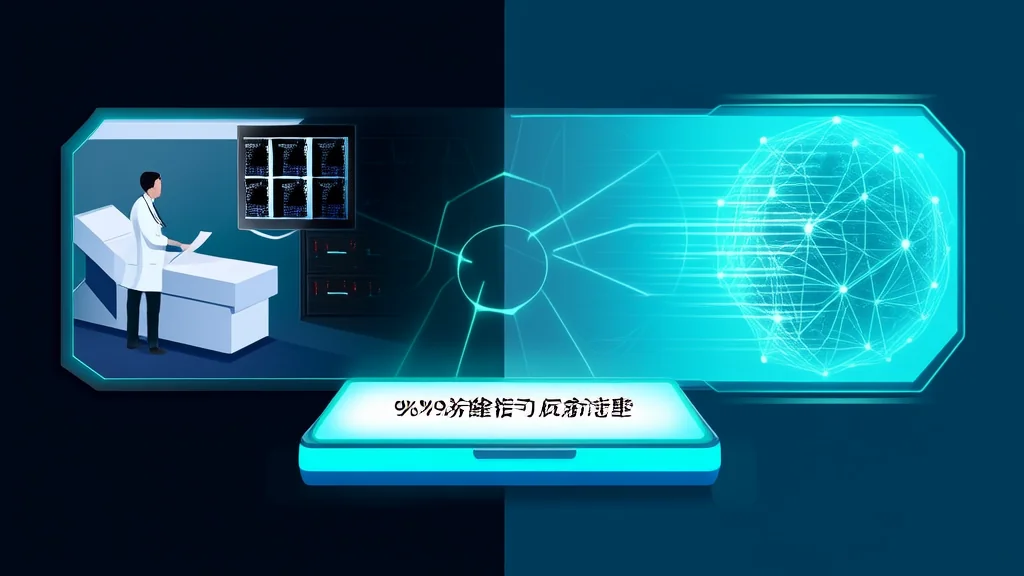The Transformative Power of AI: Real-World Impact and Stories
As we delve deeper into the 21st century, Artificial Intelligence (AI) is not just a buzzword; it's a transformative force that is reshaping industries, enhancing everyday life, and addressing some of the world’s most pressing challenges. Today, we explore how AI is making a tangible difference in healthcare, finance, and social impact, with real-world examples that highlight its practical implications and human interest angles.
AI in Healthcare: Revolutionizing Patient Care and Diagnosis
In the realm of healthcare, AI is proving to be a game-changer, offering new ways to diagnose, treat, and manage diseases. One of the most compelling examples is the use of AI in early cancer detection. A recent study by Google Health and Northwestern Medicine demonstrated that an AI system could detect breast cancer from mammograms with 9.5% fewer false positives and 27.8% fewer false negatives compared to human radiologists. This means that AI can help catch cancer earlier and more accurately, potentially saving thousands of lives each year.
Practical Impact: The reduction in false positives and negatives leads to more accurate diagnoses, which can result in better patient outcomes and reduced healthcare costs. Hospitals and clinics are already implementing these AI systems, and the results are promising.
Real-World Example: In the UK, the NHS has partnered with DeepMind (now part of Google Health) to develop and deploy AI tools for early detection of eye diseases, such as diabetic retinopathy. This initiative has already helped identify cases that might have been missed, leading to timely interventions and improved patient care.
Future Implications: As AI continues to evolve, we can expect even more precise and personalized medical treatments. The integration of AI in healthcare is not just about improving diagnostics; it's also about enhancing the overall patient experience and reducing the burden on healthcare professionals.
AI in Finance: Enhancing Security and Customer Experience
The financial sector is another area where AI is making significant strides. One of the key applications is in fraud detection and prevention. JPMorgan Chase, for example, has implemented an AI-powered system called COiN (Contract Intelligence) to review and extract important information from legal documents. This system can process 12,000 annual commercial credit agreements in seconds, significantly reducing the time and cost associated with manual reviews.
Practical Impact: By automating the review process, COiN helps reduce the risk of human error and speeds up the transaction process, leading to faster and more secure financial operations. This not only benefits the bank but also enhances the customer experience by providing quicker and more reliable services.
Real-World Example: Another example is Mastercard’s use of AI to detect and prevent fraudulent transactions. Their AI system analyzes millions of transactions in real-time, identifying patterns and anomalies that may indicate fraudulent activity. This has led to a 50% reduction in false declines, meaning legitimate transactions are less likely to be incorrectly flagged as fraud, improving the overall customer experience.
Future Implications: As AI technology advances, we can expect even more sophisticated security measures and personalized financial services. Banks and financial institutions will be able to offer more tailored products and services, while also ensuring the highest levels of security and compliance.
AI for Social Impact: Addressing Environmental Challenges
AI is also playing a crucial role in addressing environmental challenges, from climate change to wildlife conservation. One notable example is the work being done by Microsoft’s AI for Earth program, which provides grants and resources to organizations using AI to tackle environmental issues. For instance, the program has supported projects like Wild Me, which uses AI to identify and track individual animals in the wild, helping conservationists monitor and protect endangered species.
Practical Impact: By leveraging AI, conservationists can gather and analyze vast amounts of data, leading to more effective and targeted conservation efforts. This not only helps in protecting endangered species but also in understanding and mitigating the broader impacts of climate change.
Real-World Example: In Australia, the CSIRO (Commonwealth Scientific and Industrial Research Organisation) has developed an AI system to predict and manage bushfires. The system uses satellite imagery and weather data to identify high-risk areas and provide early warnings, helping authorities to respond more quickly and effectively. This has already led to a reduction in the number and severity of bushfires, saving both lives and property.
Future Implications: As AI continues to advance, we can expect more innovative solutions to environmental challenges. From monitoring and managing natural resources to predicting and mitigating the effects of climate change, AI has the potential to play a pivotal role in creating a more sustainable future.
These examples illustrate how AI is not just a futuristic concept but a present-day reality with real-world applications and tangible benefits. Whether it's improving healthcare, enhancing financial security, or addressing environmental challenges, AI is transforming our world for the better. As we look to the future, the potential for AI to make a positive impact is only set to grow, and we can all look forward to a more connected, efficient, and sustainable world.
